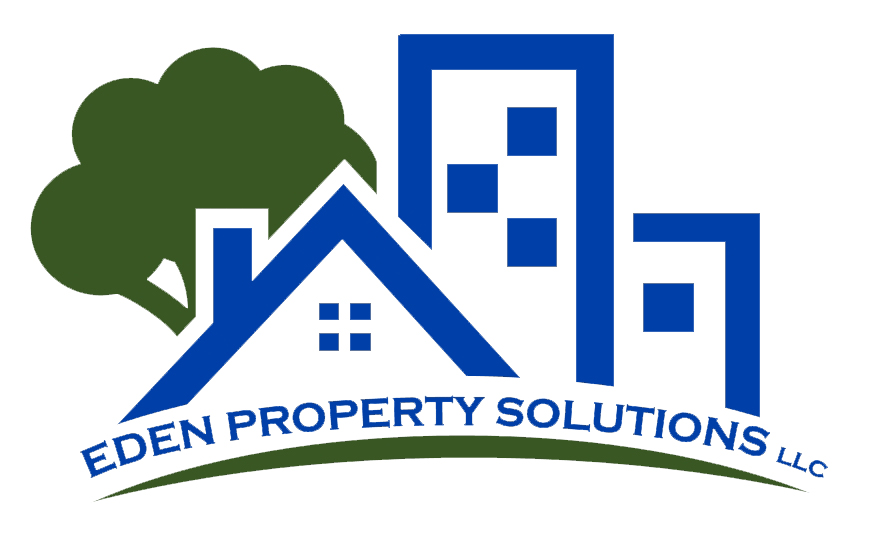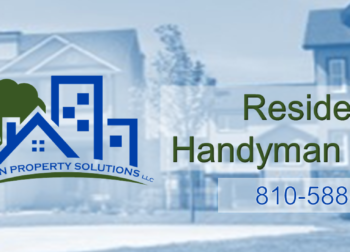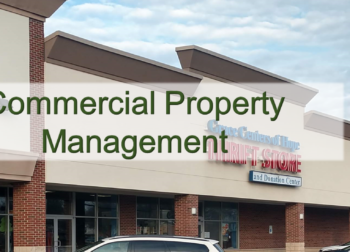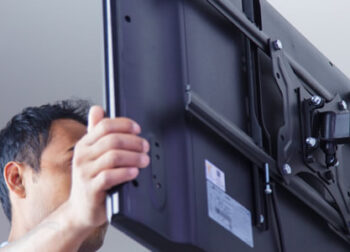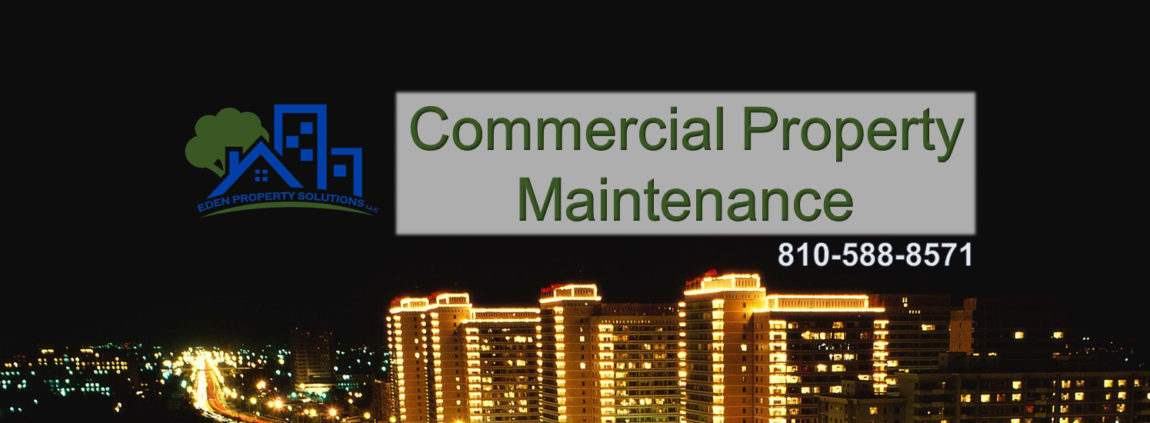
Commercial Maintenance Program that works for you.
The goal of Eden Property Solutions’ Commercial Maintenance Program is to implement a pro-active Preventive Maintenance (PM) Program that establishes the required standards – specific tasks, frequency and required operating parameters – for routine inspection by skilled technicians trained in proper methods of maintenance and repair on a wide array of building systems and equipment. In addition, required standards will be established for specialized technical inspection, preventive maintenance and repair by in-house and subcontracted technicians respectively. Eden Property Solutions can build a complete PM program for your company.
Our goal is to achieve a cost effective program, insure zero downtime for critical facilities and in general to minimize the number of service calls or complaints at your facilities. Discovery of non-routine maintenance problems before they impact our customers is a top priority of our overall maintenance strategy.
Preventive & Predictive Maintenance Management – General Principles
Eden Property Solutions’ managers and engineers are widely experienced in evaluating, designing and implementing Preventive Maintenance (PM) Programs in many different types of facilities. These include a variety of manufacturing and office environments involving many types of equipment, from boilers, chillers or manufacturing tools to sophisticated technologies, clean rooms and data systems. Our effective PM programs are the result of well-organized, carefully executed effort. A well designed Preventive Maintenance program results in:
- Fewer equipment failures with the secondary result of less client downtime. The ultimate value add is lower production costs and satisfied customers.
- Less emergency work with the secondary result of less mechanics’ overtime. The ultimate value add is lower maintenance production costs.
- Extended equipment life (as much as 20%). The ultimate value add is lower capital costs.
- Improved equipment operation with the secondary result of better service. The ultimate value adds is satisfied customers.
- Less unnecessary or premature replacement of parts. The ultimate value adds is lower maintenance costs.
One of the major tasks of the engineering team is to continuously analyze the repair history of each piece of equipment or system and its current PM status. The goal is to determine the right cycle of PM (which can be, according to the use of the equipment, a dynamic variable rather than a static one) and to make recommendations to our client regarding equipment life cycles and replacement alternatives.
The variables that must be considered in a PM vs. “run to fail” analysis are the cost of the PM program, the replacement cost of the equipment and the use of the equipment. For instance, some Owners choose not to PM general office VAV boxes and small motors because the replacement cost is small and the consequences of a failure are minimal. However, that same VAV box in a Data Center might be critical to operations and, therefore, warrant a full schedule of PMs. These are the issues that Eden Property Solutions considers when setting up a PM program for a new customer.
A major component of our ability to successfully perform this analysis and balance preventive/predictive maintenance investments against “run-to-fail” strategies is our company’s depth of experience, our ability to accurately report preventive maintenance activities, and our ability to clearly communicate and plan the required preventive maintenance activities. The costs to perform an infrared scan or planned shutdown / inspection / maintenance of electrical switchgear and other critical systems are indeed an “investment” in your business. An important part of our role is to capture all of the required preventive maintenance plans / initiatives / costs and lay them out in a road map for long-term completion in order to ensure zero unplanned / equipment failure downtime. Once that has been done we will discuss the program in depth to insure that it reflects your operating philosophy and risk tolerance.
RELIABILITY BASED MAINTENANCE
Reliability Based Maintenance is the combination of preventive, predictive, and proactive maintenance into a unified effort to achieve maximum equipment reliability and reduced maintenance costs (RBM = PM + PdM + PAM).
PM (Preventive Maintenance) is time based / interval based maintenance that involves the inspection, adjustment, cleaning, lubrication, part replacement, and minor repair of equipment.
PdM (Predictive Maintenance) is condition-based maintenance utilizing advanced technology to assess machinery / equipment condition and schedule repairs only when needed. It is used to optimize PM scheduling and reduce reactive / unplanned maintenance.
PAM (Proactive Maintenance) is the further use of advanced technology to eliminate the need for maintenance through better design, better installation, precision balance and alignment, and Root Cause Failure Analysis (RCFA).
The RBM Program’s potential value to the client is through:
- Avoided / minimized catastrophic failure
- Increased equipment / system availability
- Decreased energy costs due to misalignment, heat loss, leakage
- Decreased operating costs – labor and materials / parts
- Scheduled shutdowns
- Decreased PM’s and reallocated labor
Eden Property Solutions has applied Reliability Based Maintenance at a major high tech manufacturing site. At that location, the program was successful in maximizing equipment / systems reliability and reducing maintenance costs. It must be noted, however, that RBM programs can be costly to establish and operate. In general, Eden Property Solutions has found that these types of programs are not cost effective in a normal facilities office environment that does not include complex equipment and will not benefit from the significant value add that flows from maximizing production equipment reliability.
